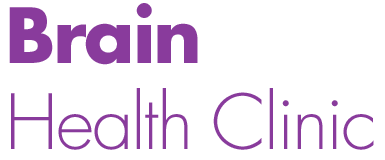
Traumatic brain injuries are caused by violent blows to the head. Automobile accidents are a primary cause, as are sports injuries, construction accidents, falls, and incidents during military service. Symptoms include persistent headaches, blurred vision, fatigue, nausea, loss of coordination and a persistent state of confusion. Fortunately, many studies indicate that neurofeedback therapy is a predominantly successful form of treatment for the side effects of traumatic brain injuries (or TBI).
What the Science Says About Neurofeedback and TBI
In 2013 a team of clinicians examined 22 different studies on neurofeedback therapy for traumatic brain injury. The results were reported in the Annals of Clinical Psychiatry. All of the studies indicated that neurofeedback leads to improvements in the symptoms commonly associated with TBI. Especially noteworthy is that this review demonstrated that whether the researchers used subjective methods of reporting (the patient states whether they sense improvement), or objective forms of measurement (the clinician measures the level of patient symptoms by set standards), the majority of patients experienced positive outcomes.
Even in cases of severe traumatic brain injury, neurofeedback has demonstrated significant effectiveness. A 2021 report from Clinical EEG Neuroscience used the example of a 26-year old man who was left comatose for 26 days after a motor vehicle accident. His post-accident symptoms included epilepsy alongside speech and cognitive issues. After five years of various therapies, including hyperbaric oxygen treatment, doctors decided to include neurofeedback in his therapy regimen. As a direct result, the man experienced a reduction in the number of seizures, and improvements in “short-term memory, personality, language, and executive function.” Similar results were obtained in a report from Spain, with researchers concluding that “EEG-based neurofeedback is probably an excellent complementary technique to be considered to enhance conventional neuropsychological rehabilitation.”
Finally, a Harvard Medical School pilot study examined twenty patients with mild to moderate TBI and the effect of neurofeedback on their symptoms. Preliminary results suggested that “survivors of TBI could benefit from improved motivation for treatment and some reduction of symptoms related to attention, mood, and mindfulness with the addition of neurofeedback to mindfulness meditation training.” Likewise, a Veterans Affairs study out of North Carolina treated 36 military veterans for TBI with neurofeedback. They also came to the conclusion that the treatment was effective in reducing chronic pain, causing “minimal side effects.”
The Brain Health Clinic Can Help
The founder of the Brain Health Clinic, Dr. Gay Teurman, first dedicated her career to neuropsychological work after directly experiencing the benefits of neurofeedback for treating her own case of TBI. Over a decade of treating patients with various conditions has provided her with significant clinical experience regarding neurofeedback therapy for brain injuries. To get more information and a free initial consultation, contact the Brain Health Clinic and see firsthand the improvements that result from neurofeedback for TBI.
